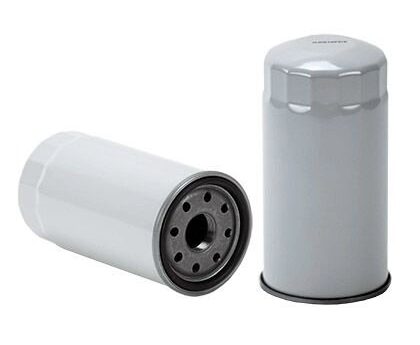In the sun-soaked landscapes of Australia, the adoption of solar power systems has become synonymous with sustainable living. As homeowners and businesses increasingly turn to harnessing the sun’s energy, it’s essential to understand the various types of solar power systems available. In this exploration, we delve into the nuances of residential and commercial solar power, shedding light on the diverse offerings provided by solar companies, including those in Melbourne, a city embracing the solar revolution.
**1. Grid-Tied Solar Power Systems:
Overview: Grid-tied systems, also known as grid-connected or on-grid systems, are the most common type of solar power installations. These systems are connected to the local electricity grid, allowing excess energy generated by solar panels to be fed back into the grid.
Advantages: Grid-tied systems ensure a constant power supply even when solar production is low. Homeowners and businesses can benefit from net metering, where they receive credits for the excess energy they contribute to the grid.
Application: Ideal for urban settings and areas with reliable grid infrastructure, these systems are widely adopted in residential and commercial spaces.
Grid-tied systems operate seamlessly, with surplus energy being directed back to the grid. During times of low energy production, such as at night or during heavy cloud cover, users draw power from the grid, ensuring a consistent and reliable electricity supply. The interconnected nature of these systems fosters a symbiotic relationship between solar adopters and the existing electrical grid.
Read More:- Streamline Your Business Finances with Expert Bookkeeping Services in London
**2. Off-Grid Solar Power Systems:
Overview: Off-grid systems operate independently of the electricity grid. They utilize solar panels, batteries, and sometimes backup generators to meet the energy needs of a property.
Advantages: Off-grid systems provide energy autonomy, making them suitable for remote locations or areas with unreliable grid access. They ensure a continuous power supply even in the absence of grid connectivity.
Application: Commonly used in rural or off-grid locations where extending grid infrastructure is impractical, off-grid systems offer a self-sustaining energy solution.
Off-grid systems come into their own in locations where traditional grid access is challenging. Remote cabins, agricultural operations, or scientific research stations in the Outback are examples where off-grid solar power systems become a lifeline. These systems store excess energy in batteries for use during periods of low sunlight, ensuring a consistent and reliable power supply.
**3. Hybrid Solar Power Systems:
Overview: Hybrid systems combine elements of both grid-tied and off-grid systems. They include solar panels, battery storage, and a connection to the grid, providing flexibility and resilience.
Advantages: Hybrid systems offer the best of both worlds, allowing users to benefit from grid connectivity while also having a backup power source during outages. They optimize self-consumption and enhance energy independence.
Application: Well-suited for areas with intermittent grid access or homeowners and businesses looking to maximize self-sufficiency while enjoying the benefits of grid connection.
Hybrid solar power systems exemplify adaptability. These systems intelligently manage energy production, consumption, and storage. During periods of high solar production, excess energy charges batteries. In times of low production, or during power outages, stored energy is utilized. This versatility ensures uninterrupted power supply, a key advantage in regions where grid reliability is a concern.
**4. Residential Solar Power Systems:
Overview: Tailored for homes, residential solar power systems are designed to meet the energy needs of individual households. They typically include rooftop solar panels connected to the grid or equipped with battery storage.
Advantages: Residential solar systems empower homeowners to generate their electricity, leading to reduced electricity bills and a smaller environmental footprint. They often come with government incentives and rebates.
Application: Ideal for homeowners looking to reduce energy costs, contribute to environmental conservation, and potentially increase the value of their properties.
Residential solar power systems offer homeowners a direct pathway to energy independence. The typical setup involves solar panels installed on rooftops, capturing sunlight and converting it into electricity. The generated power can either be consumed immediately or stored in batteries for later use. Government incentives, such as feed-in tariffs and tax credits, further sweeten the deal for homeowners looking to invest in sustainable energy solutions.
**5. Commercial Solar Power Systems:
Overview: Scaled for larger energy needs, commercial solar power systems are designed to meet the electricity demands of businesses and industrial facilities. They can be grid-tied, off-grid, or hybrid, depending on the specific requirements.
Advantages: Commercial solar systems offer significant cost savings for businesses, enhance corporate sustainability profiles, and contribute to environmental stewardship.
Application: Suitable for a wide range of businesses, from small enterprises to large industrial facilities, commercial solar installations are becoming increasingly popular in Australia’s corporate landscape.
The adoption of commercial solar power systems is a strategic move for businesses looking to enhance their bottom line while championing sustainability. These systems often cover vast expanses of rooftop space or can be ground-mounted in areas with available land. Beyond the immediate financial gains, businesses benefit from a positive public image and a competitive edge in a market increasingly favoring environmentally conscious practices.
Empowering with Solar Companies in Melbourne:
In the bustling cityscape of Melbourne, where sustainability meets innovation, solar companies play a crucial role in bringing solar power solutions to life. A leading solar panel installer in Melbourne understands the unique energy landscape of Melbourne and tailors systems to suit residential and commercial needs.
Melbourne, with its vibrant urban fabric, offers unique challenges and opportunities for solar adoption. Solar companies in Melbourne are adept at navigating these complexities, ensuring that solar power systems seamlessly integrate into the architectural and operational fabric of the city. From compact residential installations to expansive commercial projects, these companies bring expertise and innovation to the forefront of Melbourne’s sustainable energy revolution.
Conclusion:
As we navigate the diverse types of solar power systems available in Australia, it’s evident that the solar revolution is not a one-size-fits-all affair. From the sunlit rooftops of residential homes to the sprawling structures of commercial enterprises, solar power systems offer a customizable and sustainable solution for meeting energy needs.
In Melbourne, as in the rest of Australia, the choices are abundant, and solar companies, armed with expertise and innovation, are empowering individuals and businesses to embrace a brighter, cleaner energy future. Whether connected to the grid, standing independently off-grid, or seamlessly integrating both, solar power systems are a beacon of light in Australia’s journey toward a sustainable energy landscape. With every solar panel installed and every business embracing solar solutions, we collectively step into a future where clean and renewable energy is not just an option but a way of life.



